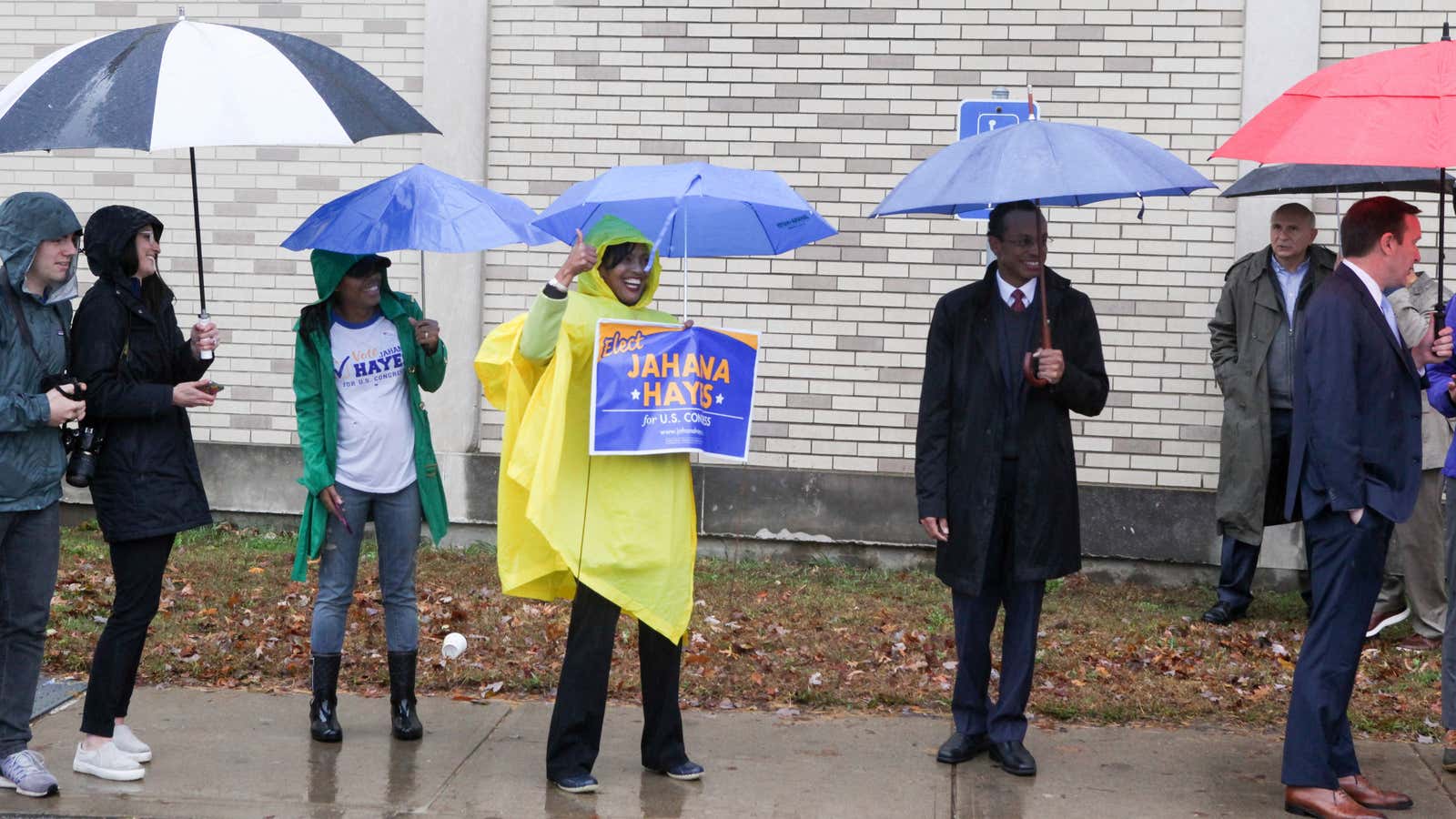The entire eastern half of the United States will be buffeted by storms today (Nov. 6), in what could be a gift from the weather gods to Republicans. Research has found that bad weather correlates with lower voter turnout, which tends to hurt Democratic candidates worse than Republicans.
As Quartz has previously reported, a 2007 study that examined 14 US presidential elections, found that “rain significantly reduces voter participation by a rate of just less than 1% per inch.” Bad weather drives away more Democrat votes than Republicans to the extent that the elements “may have contributed to two Electoral College outcomes, the 1960 and 2000 presidential elections,” the authors write.
The 2007 paper suggests that rain is better for Republicans because peripheral voters—those who are less likely to vote but can turn out in response to mobilization efforts—are more likely to be Democrats. These are voters who were more likely to have needed convincing to come out to the polls anyway, and rain (or other bad weather) may be enough to deter them from following through. High-turnout elections, in general, tend to benefit Democrat candidates. And low-turnout elections, such as those impacted by heavy rain, give an edge to Republicans, according to the 2007 study.
But a paper published last year in American Politics Research, argues that this isn’t the full story: Not only does rain decrease Democrat votes, that study found, but it also increases Republican support. This 2017 paper, which looked at the same 14 elections as the 2007 study, shows that at least 1% of voters who would vote Democrat without rainfall, switch to a Republican vote when there is rain.
The paper does not definitively explain why rain makes voters more Republican, but offers a compelling theory: Weather has been shown to affect people’s moods, which in turn affects their attitudes to risk. “When voters are virtually indifferent between two candidates, those who feel in an upbeat mood may lean toward the riskier candidate, while those who feel depressed and anxious lean toward the safer candidate,” write the authors. And, as the paper notes, research has shown that conservative Republicans are more risk-averse than liberal Democrats.
The theory is unproven, but the data certainly show that a bad-weather day for voters makes for the perfect weather conditions for Republicans.
